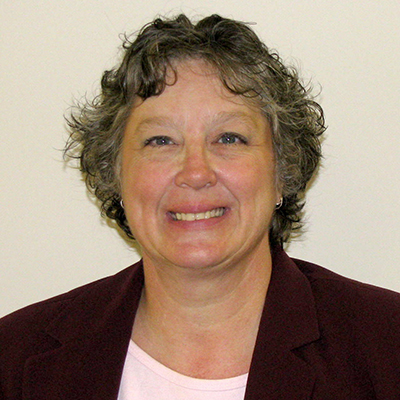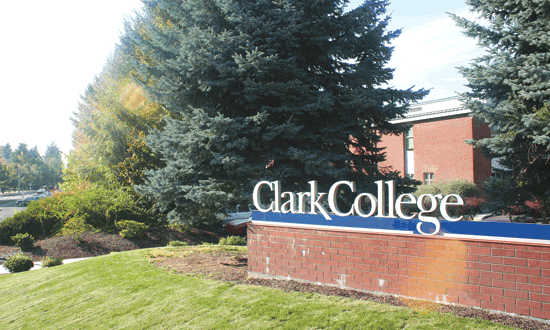Clark College is undergoing an exciting transformation to deliver education and a successful transition to career positions for its students. The transformation model, called Guided Pathways, helps students make appropriate career choices and keeps them on track. Clark College is in its second year of that five-year transformation.
At educational institutions implementing this model, students graduate sooner, on time and at higher rates – based on statistics generated from the model’s success at a number of colleges, including Pierce College, Florida State University and Guttman Community College at Cuny.

According to the Community College Research Center (CCRC) at Columbia University, “Most community colleges, rather than offering structured pathways to a degree, operate on a self-service or ‘cafeteria’ model, allowing students to choose from an abundance of disconnected courses, programs and support services.” CCRC found that “the many course and program options and the limited guidance currently provided by community colleges likely contribute to students’ meandering and varied pathways through college.”
In a 2017 article entitled “Guided Pathways at Community Colleges: From Theory to Practice,” Columbia University Professor and Director of CCRC Thomas R. Bailey writes, “As of 2017, guided pathways reforms are being designed by more than 250 colleges, including at least ten in each of the following states: Arkansas, California, Massachusetts, Michigan, New Jersey, Ohio, Tennessee, Texas, Virginia and Washington. Thirty colleges are participating in the Pathways Project coordinated by the American Association of Community Colleges (AACC).”
According to a team of Columbia University researchers – Davis Jenkins, Hana Lahr and John Fink – “Guided pathways reforms involve every part of the college, requiring the redesign of major departments and of functions such as developmental education and advising. For this reason, they take several years to implement in full, and they require coordination among administrators, faculty, advisors, financial aid personnel, schedulers, technology specialists, and many others.”
The Transformation at Clark College
Implementing the Guided Pathways model, Clark College is working to become prepared for students instead of expecting students to be prepared for the college. Clark College is excited about what that means for students. The Guided Pathway program makes it less overwhelming for students and makes the process a more structured pathway, less uncertain. Students are then moving along in a structured and directed pathway, that involves supports embedded along the way, including wrap-around services such as a Writing Lab or math tutor.
The transformation at Clark College follows four main practice areas, developed by the CCRC and AACC: (1) Clarify students’ choices using default program maps, with a clear pathway to students end goals and to completion; (2) Help students choose and enter a pathway; (3) “Support students through a strong advising process, embedded and ongoing … monitor their progress and intervene when they go off track;” and (4) Ensure that students are learning, and that learning is aligned with the requirements for success in employment.
The Clark College Career Center
An integral part of this “pathway model” and of the college’s transformation is the Clark College Career Center, which offers a full spectrum of services, from help with deciding on a career pathway, to coordinating with the student to plan how to meet the financial demands of that pathway, to helping to keep the student on track with their educational goal and career pathway, to finding that first career position.
Edie Blakley, the Director of Clark College’s Career Services, said, “I can’t emphasize enough that we have really stellar professionals to guide people through the job search process or to help them make decisions about a career.”
“Career decisions can produce some anxiety,” Blakley said.
The Clark College Career Center offers more of a guided process for this decision, with follow-up appointments.
The Career Center’s resources include online programs, ongoing advising and career assessments – like the Myers-Briggs and Strong Interest, with interpretations by group and/or through individual advising. There are handouts for creating the best resume and cover letter, as well as employment specialists for helping with the application process and with interviewing – practice, feedback and coaching to help applicants feel more confident and competent.
Inside the Career Center, there is the Info Desk staff, a library of reference books, handouts and the Computer Lab with WOIS (Washington Career Info System) as well as Oregon’s system, CIS, since Vancouver is a border city, the tools are very similar. There are also vocational biographies to learn about what the daily job situation would be, covering a wide spectrum of jobs from rancher to machinist. And employment specialists in the Advising Center strike a balance between coaching and encouraging. An example would be a practice interview, where the employment specialist bolsters confidence while also giving valuable feedback.
The Center offers Student Success Workshops – no cost, no sign up, no kidding. Examples of the summer 2018 workshops are: Internships: Why it’s nuts not to have one; Job Search Tips; LinkedIn 101; Work Study 101; Resume Building; Interview Skills; Professional Networking; Time Management; Managing Your Student Loans after Clark; Top 8 Skills Employers Want in College Graduates; and YouTube and Career Explorations.
Outside the Career Center, in the hallway, there is a plethora of handouts available – financial aid, resumes, cover letters, job searches, the budget process, achieving financial independence, internships and so on.
The Job Spectrum at Clark College
The Clark College Career Center offers a number of job possibilities, both during and after the student’s educational goals have been achieved. Penguin jobs is an online tool, where local and some non-local employers post positions to engage with Clark College students. The jobs range from part-time to work study to institutional (on-campus part-time), to internship co-op and career positions.
The Career Center philosophy is that students build a resume while in college which will then become their career resume.
Returning Students or Changing Tracks
People often visit the college as returning students for career advising or to change tracks. The Center tries to get working folks to identify their career path early and get related experiences.
The Center is open to the community for career development and career preparation – to help with application materials, personal presentations and with navigating the Penguin jobs website as well as other online job boards like Indeed.com and Craigslist. The Center guides people all the way from career decision-making to employment.
An example is when the Camas paper mill shut down. Clark College had a financial adviser go in and talk to those workers about their future. A layoff can be overwhelming but having a career adviser to offer hope and to help them imagine something different can make a huge difference.
Employer Relations Specialist
The Employer Relations Specialist at the Career Center connects with local employers to facilitate opportunities for Clark students for informational interviews, internships and career jobs. The specialist goes to the Vancouver Chamber of Commerce, to the landscape of employers who have posted jobs with Clark, and analyzes the work opportunities available to graduates in specific academic programs and works with local employers to increase the number of available jobs across the variety of degrees and certificates.
Financial Help
Through the Guided Pathways model, Clark College offers student loans and help with planning, to reduce some of the anxiety about having enough while in school. To help pay for college, Clark offers financial aid, grants, work study, scholarships, and institutional hires – positions paid through the college, which are part time and on campus.
The Career Center maintains space on campus for a couple of people from Worksource Southwest Washington. Besides help with employment, they offer grants – Workfirst and WIOA. Some Clark students use benefits that pay them to retrain in professional technical careers. Worksource is embedded in Clark’s Career Center to make it easier for students to connect with them.
“We know they’re going into a professional track,” Blakley said, “and it’s a ways to their goal. For potential recipients of grants, it makes it easier to be in this program and connect with the case manager.”
A Financial Wellness Coach figures out how to create a spending plan as well as how to build forward toward a more secure financial future. This Coach helps people make a financial plan for three months, six months and two years or more.




